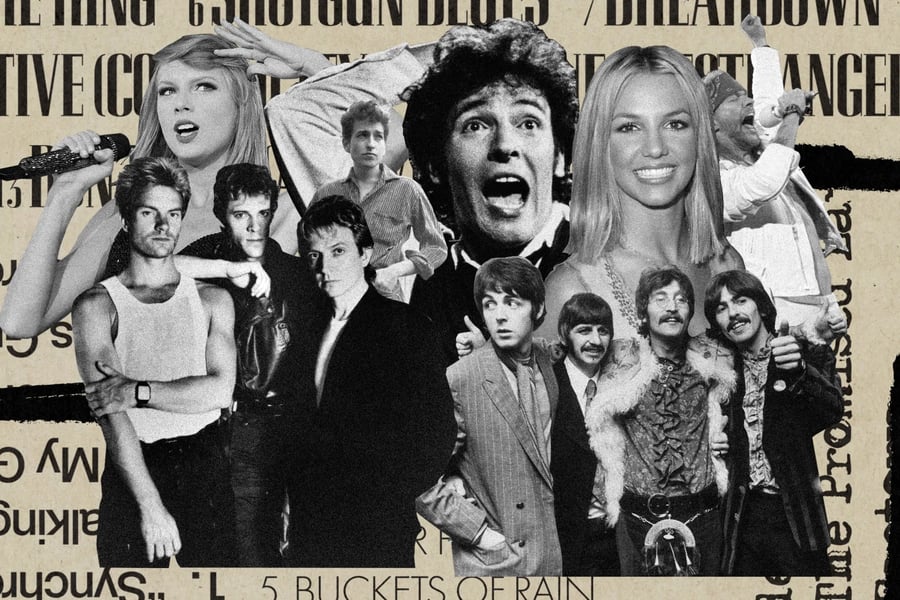50 Terrible Songs on Great Albums
A list of 50 terrible songs on otherwise great, classic albums, from the Beatles and Bob Dylan to Harry Styles and Taylor Swift

PHOTO ILLUSTRATION BY MATTHEW COOLEY. PHOTOGRAPHS IN ILLUSTRATION BY ROBYN BECK/AFP/GETTY IMAGES; SHOWTIME/GETTY IMAGES; MICHAEL OCHS ARCHIVES/GETTY IMAGES; GEORGE ROSE/GETTY IMAGES; KEYSTONE-FRANCE/GAMMA-KEYSTONE/GETTY IMAGES; STEVE GRANITZ/WIREIMAGE; MICK HUTSON/REDFERNS/GETTY IMAGES
There’s always one. It’s that single track on a great record that sucks to such a profound degree that it almost feels like a sick joke. They exist for all sorts of reasons. Sometimes the lead singer felt obligated to give the drummer one song on Side Two to maintain group harmony. Other times, they took ludicrous amounts of drugs and the idea of having a dog howl for 134 seconds or banging a metal cross against guitar strings for a solid minute and a half felt like a grand plan. And other times, they’re just desperate for a hook and wind up stealing one from a Corn Flakes jingle and placing the shitty tune on the same Beatles album as “A Day in the Life.”
We combed through music history and came up with 50 terrible songs that taint otherwise perfect records. It’s likely that a great many of you will disagree with at least some of these picks. That may be because you’ve heard some of these records so many times that it’s hard to imagine them in any other form. But does Goodbye Yellow Brick Road really benefit from “Jamaica Jerk Off”? Does Synchronicity truly need a song where Andy Summers rants like a lunatic about his overbearing mother? Did Phil Collins really need to deliver “Illegal Alien” with a heavy Spanish accent?
It should be noted that these weren’t always easy calls. The White Album posted particularly vexing questions due to polarizing tracks “Rocky Racoon,” “Good Night,” “Revolution 9,” and “Ob-La-Di, Ob-La-Da.” We didn’t go with any of those songs, and we have little doubt many of you won’t agree with the pick. Likewise, we just couldn’t get with the conventional wisdom that “Treefingers” brings down Radiohead’s “Kid A,” and “La La Love You” has no business appearing on the Pixies’ “Doolittle.” We like both of those songs. The list is ranked from least worst to flat-out worst. If you disagree with us there or on any of our other picks, take to social media and blast us to pieces. We can take it.




















































































